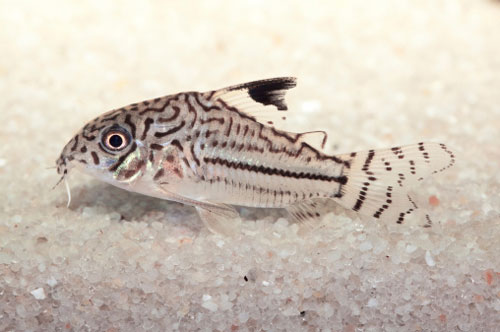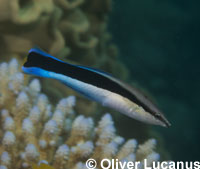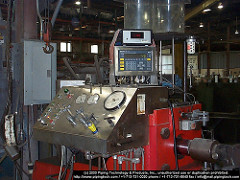What is a “Complete” protein and why should I care?
In the last blog we identified how protein is the single most important food we eat. So it stands to reason that the quality of the protein source must also be carefully considered.
Just eat more eggs, milk, beef, chicken, soybeans, fish right? Not so fast.
The quality of a protein food is measured by the amounts and balance of the essential amino acids it contains. If a food contains all nine essential amino acids in proper amounts to support your body’s health, we call that food a “complete protein”. Examples of complete proteins are eggs, milk, beef, chicken, soybeans and fish. If a food is missing an essential amino acid, or is too low in one or more, it is called an “incomplete protein.” Many people try to determine the quality of a food by the percentage of protein or the grams of protein it contains. (fyi, the recommended daily allowance for protein for females age 25-51+ is approx. 50 grams, males 63 grams). If the protein is “incomplete” however, that percentage/gram content is quite misleading. Some examples of incomplete proteins are peas, cereals and lentils. They can be combined to can give you a complete protein but you will need to know the amino acid content of each to make sure. This can be done, but is a challenge to say the least.
Protein is in meat, but meat is not all protein. A steak is meat, but 10 ounces of steak do not give you 10 ounces of protein. For instance, a broiled 10 ounce T-bone steak contains only 19 percent protein and a whopping 43 percent fat! Way too much for a person seeking optimal health! Nearly 70 percent of our protein intake comes from animal sources such as meat, fish poultry, milk, eggs and products made from them. These same sources contribute more than three-fourths of the saturated fat, and all the cholesterol in our diets!
The fat in 70 percent of our protein intake is significant. Perhaps just as important, what else comes with it? Antibiotic-laced feeds went on the market in the 1950’s. Today, over half of the more than 31 million pounds of antibiotics produced in the US go into animal feed-not because the animal is sick and needs them, but because they make them bigger. Besides penicillin and tetracycline in meat, you also can get nitrofurazone and sulfamethazine, along with other sulfa drugs. Because of the research on the misuse of antibiotics, several European countries banned the use of antibiotics in animal feed in the 1970’s, but our government is still dragging it feet on this issue due to money, power and politics. Additionally, significant pesticide residue has been found in many protein sources. Finally, due to overworked federal inspectors, processing plants leave much to be desired in insuring meat free of bacterial, antibiotic and chemical contamination.
What’s a person to do? Even a sub-clinical or low protein level diet causes symptoms of fatigue, loss of vitality, poor wound healing, depressed immune system, unusual hair loss, poor nail growth, skin problems, water retention, poor muscle tone and slow or lack of proper growth in children. Getting too little protein is definitely not harmless.
We’ve identified that a diet with high-quality, low-fat protein is of extreme importance in enjoying a vigorous, healthy life. To be sure, and provide nutritional insurance, choose a premium quality soy protein supplement to your diet to get all the tremendous benefits of optimal protein intake. The benefits of soy protein include sustained energy, vitality, and stamina - plus the benefits of naturally occurring isoflavones, compounds not present in meat or dairy foods. These naturally occurring beneficial plant compounds are shown in many studies to deliver long-term health benefits. Some soy protein products are alcohol-processed, which removes these isoflavones. Shaklee Soy Protein supplements are water-washed to retain naturally occurring isoflavones.
Why Choose Shaklee Soy Protein Supplements?
• 14 - 24 grams of protein per serving
• Uses only IPP-certified non-GMO soy protein
• Highest-rated protein quality
• Natural vegetarian protein source
• Naturally cholesterol free
• Low fat, and low glycemic
• Naturally lactose free
• All the amino acids, including the nine essential ones you
must get from food
We at the Universal Key encourage you to make the investment in your health and add a Shaklee Soy Protein Supplement to your daily diet for nutritional insurance. Also purchase beef, pork, poultry and dairy products from reliable sources that don’t use the growth hormones and antibiotics in the raising of their animals. Organic farmers have made the commitment to not using chemical pesticides/fertilizers on the crops that they produce and feed to their animals as well. Just lowering your intake of these types of foods and adding more organically grown vegetables, fruits and grains can reduce your risk of harmful contaminate exposure. (Find ways to connect and find out more at the links below the article)

 Keep Your Aquarium Clean With These Tank Tools
Success in maintaining a freshwater system takes applied kno
Keep Your Aquarium Clean With These Tank Tools
Success in maintaining a freshwater system takes applied kno
 Cleaner Wrasse
Cleaner Wrasse
 Five Tips for Freshwater Aquarium Success
You spent countless hours researching the latest products to
Five Tips for Freshwater Aquarium Success
You spent countless hours researching the latest products to
 Would You Like The Supreme Fishing Experience? Heres The Reason Why It Is Essential To Carry The Mo
If what youre seeking out is considerably more fish thr
Would You Like The Supreme Fishing Experience? Heres The Reason Why It Is Essential To Carry The Mo
If what youre seeking out is considerably more fish thr
 Red Worms
Q. I’ve seen advertisements for red worms as a food for fish
Red Worms
Q. I’ve seen advertisements for red worms as a food for fish